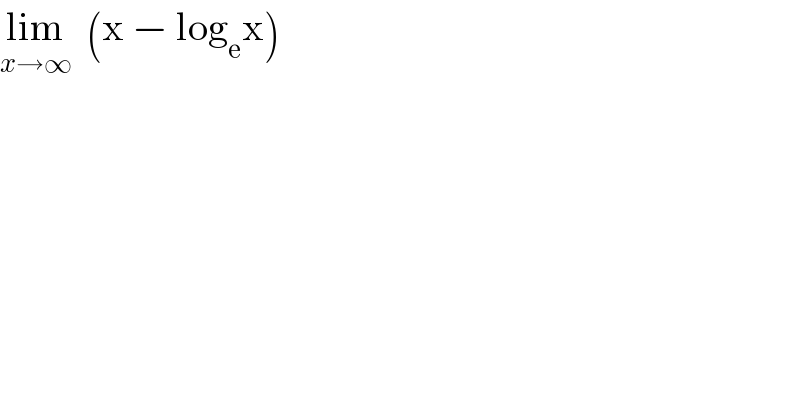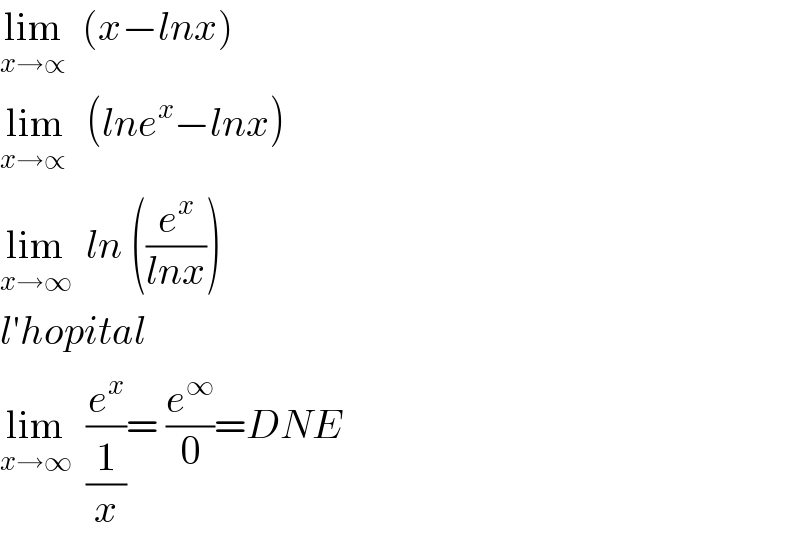Question Number 28084 by tawa tawa last updated on 20/Jan/18

Commented by çhëý böý last updated on 20/Jan/18

Commented by tawa tawa last updated on 20/Jan/18

Commented by abdo imad last updated on 20/Jan/18
![we know that D_(lnx) =]0,+∞[ so lim_(x→+∞^ ) ^ (x−lnx)=lim_(x→+∞) x(1− ((lnx)/x))=lim_(x→+∞) x =+∞ because lim_(x→+∞^ ) ((lnx)/x)=0 .](https://www.tinkutara.com/question/Q28118.png)
Commented by abdo imad last updated on 20/Jan/18

Commented by çhëý böý last updated on 20/Jan/18

Commented by tawa tawa last updated on 21/Jan/18

